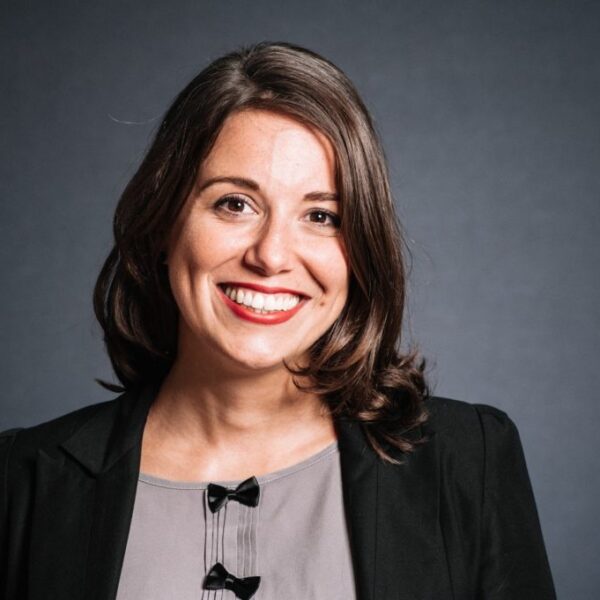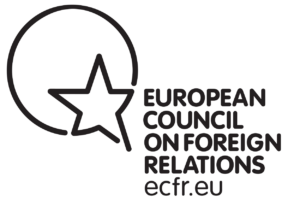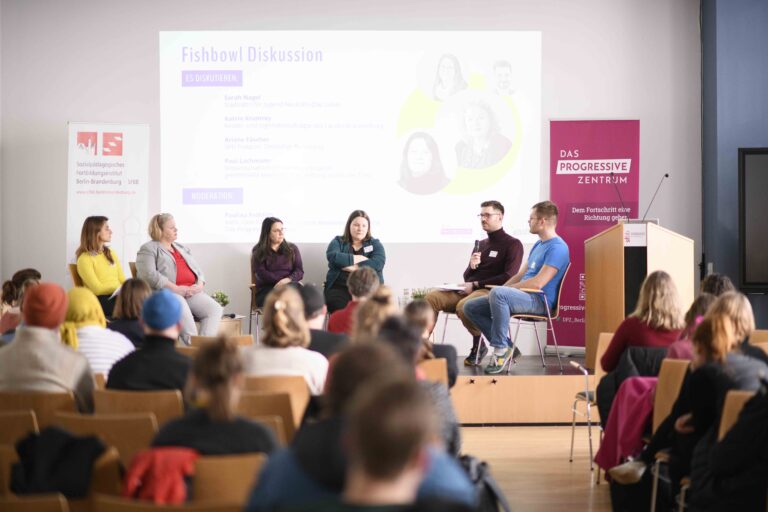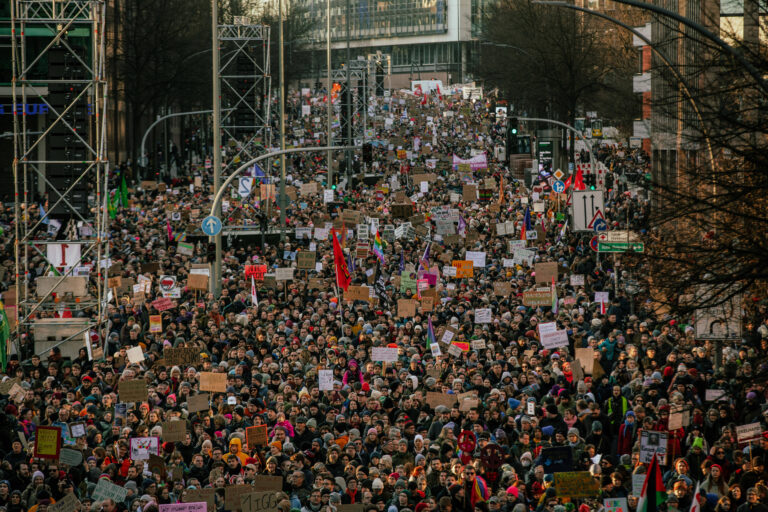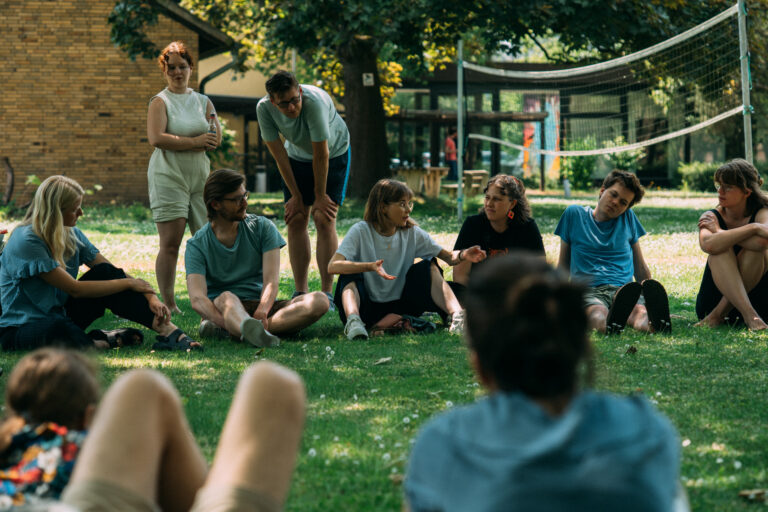The fundamental values of the EU are defined in Article 2 of the Treaty of the European Union. However, recent years have shown an unsettling global trend of democratic backsliding and authoritarian tendencies. Shared values like the rule of law and respect for freedom, democracy, and equality have to be at the foundation of a strong European public sphere.
The working group’s facilitator:
Sophie Pornschlegel
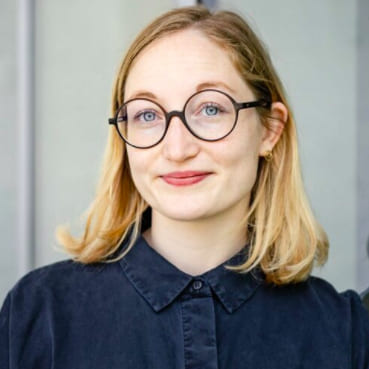
Sophie Pornschlegel is a Policy Fellow at „Das Progressive Zentrum“. She works as a Senior Policy Analyst at the Brussels-based think tank „European Policy Centre“ and Project Leader of „Connecting Europe“ to connect civil society with EU decision-makers. Her expertise lies in EU politics and institutions, democracy and rule of law as well as Franco-German relations.
The fellows of this working group:
Désirée Biehl
United in Diversity: yes – but to continue that spirit we need to open up to better communication and cooperation between us.

Désirée Biehl graduated with a MA Degree in Global Security Studies from the University of Sheffield. Afterwards, she gained a Master’s Degree in the trilingual programme International and European Studies in Nice, Berlin and Rome at the Centre International de Formation Européene. Beforehand she studied Politics and Administration at the University of Konstanz and Bologna. Her research interests are Security Politics, the EU and Memory Studies. Additionally, she is an EU-Simulation trainer at schools for the Civic Institute. She is currently working as a Research Fellow at Villa Vigoni, German-Italian Centre for the European Dialogue.
Saulo Carballal Ramos
The strengthening of the European Public Sphere: The remedy for the unprecedented challenges that have put at risk the EU project.
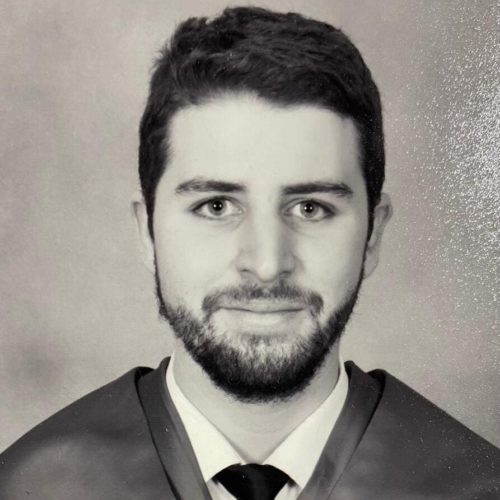
Saulo Carballal Ramos is a Spanish lawyer and legal researcher, he has held different positions at the University of Copenhagen as well as with local NGOs in Greece, Denmark, Barcelona and Lebanon helping in different projects, collecting and analysing legislation with the purpose to find Human Rights legal problems. His PhD work engages with the European Union’s migration and asylum law and policies, and first-hand experience of refugee situations.
Past projects include a report on Human Rights and Human Dignity in Denmark and the analysis of the future borders of the EU.
Carmen Descamps
European Public Sphere is not an abstract idea, it is for every one of us to fill it with life and make it happen!
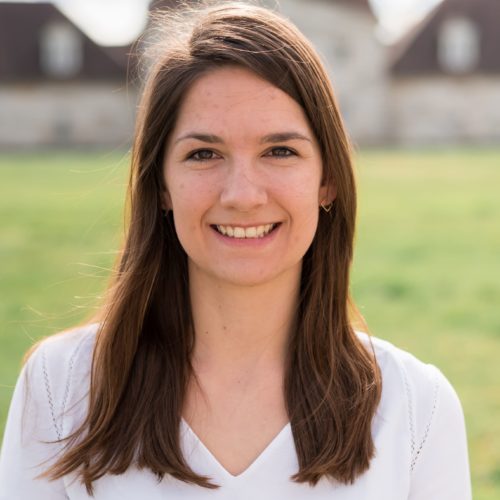
Carmen Descamps has looked at European Public Spheres from different European capitals during the last years, now as a project and policy consultant in Madrid. She recently published a book on EU citizenship and citizens‘ rights in Europe. Previous work experiences led her to the Friedrich Naumann Foundation in Brussels as European Affairs Manager, as well as to the European Commission, the German Federal Foreign Office and the Institut für Europäische Politik. Passionate about sharing knowledge and discussing EU or Franco-German affairs, Carmen volunteered for the Franco-German Youth Office as well as for the Schwarzkopf Foundation. She graduated in European Studies and Political Sciences from Sciences Po Paris and Free University Berlin with a thesis on European Public Spheres during the Euro crisis.
Jascha Galaski
Societal issues are best tackled when citizens engage in public debates.
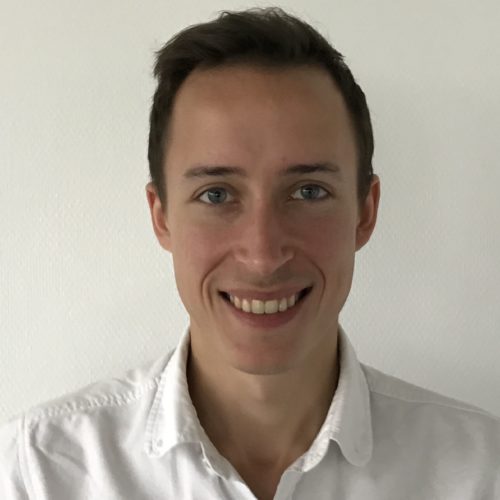
Jascha Galaski is Advocacy Officer at the Civil Liberties Union for Europe, where he works on changing narratives and strengthening civil society. He also participates in the Migration Program at Polis 180. Previously he worked in the social entrepreneurship scene in Berlin. Jascha holds a Master in Public Policy and Human Development from the United Nations University in Maastricht.
Dr. Emilia Palonen
European public sphere is important for dissensual democracy and finding common grounds for debate and disagreement.
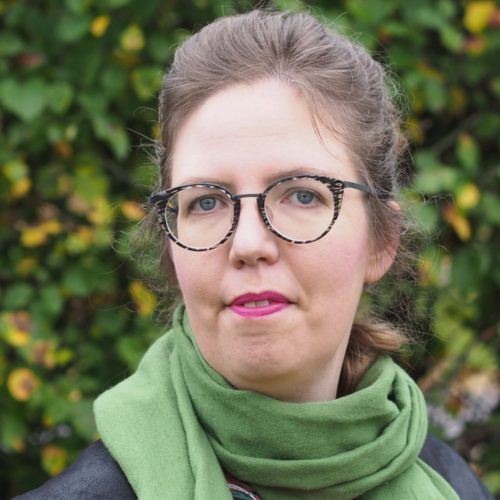
Emilia Palonen is Senior Researcher in Political Science at the University of Helsinki, and the leader of HEPPsinki research group. She directs several projects with international researchers working on populism and polarisation in Europe, culture, media and politics included. Besides populism and cultural theory, she has worked on polarisation in Hungary, politics of memory and on “Europe” in European cultural policy. She’s been educated in the UK and spent several years around Central Europe before returning to her native Finland.
Marco Schwarz
The future of our democracy depends on a vibrant public sphere where European citizens can communicate and learn from each other.
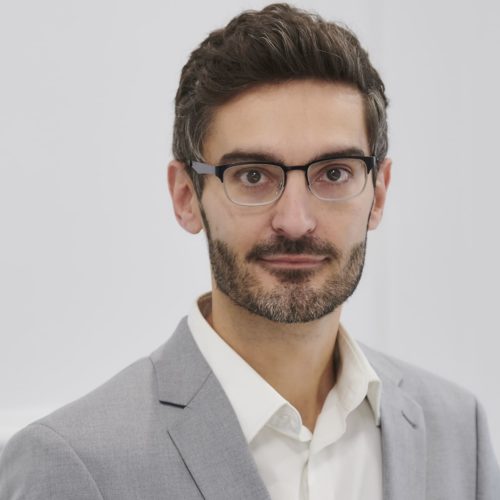
Marco Schwarz holds a Master of Social and Political Sciences from the University of Göttingen (Germany). Having studied in Czechia, Spain as well as in Russia and traveled a lot across Europe, Marco is a passionate advocate of the European Idea and a united Europe. He worked for the Union of European Federalists in Germany on European citizenship and participative democracy. Due to his great interest in Eastern Europe, he has organized many study trips for youth to southeast Europe. Since 2015 he is a policy coordinator at the Friedrich-Ebert-Stiftung EU-Office where he oversees projects on democracy, the rule of law, and good governance.
Susanne Zels
More participation and assumption of responsibility reduces dissatisfaction.
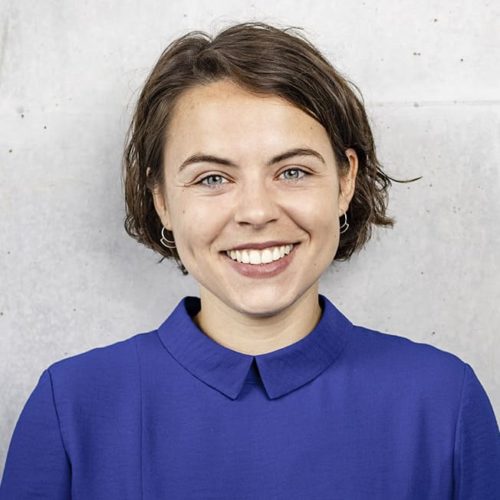
Susanne Zels is co-founder and manager of VALUES UNITE advocating the establishment of a European Agency for Citizenship Education. She has previously worked on European identity and political participation at Polis180, a grassroots think-tank for foreign and European affairs. As program lead and co-president Susanne led projects such as the election-tool EUROMAT, the manifesto AlternativeEuropa! and the campaign jung&wählerisch in order to promote European values and cohesion. Leading by example she actively participated in politics by standing as candidate for the European parliament in 2019 for the Berlin Christian Democrats.



